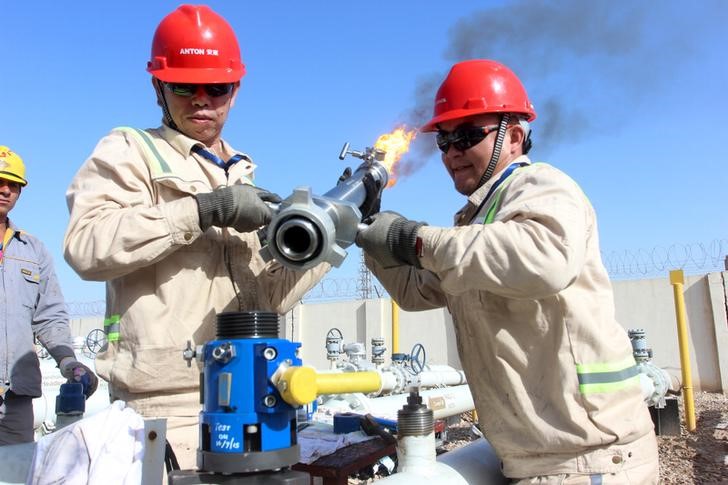Investing.com - Oil prices rose on Tuesday as a strike by oil workers in Kuwait cut the country’s output levels, as markets continued to reel from a failure by major oil producers to reach an agreement on a production freeze aimed at propping up prices.
Crude oil for June delivery on the New York Mercantile Exchange rose 22 cents, or 0.53%, to trade at $41.42 a barrel by 0817 GMT.
Global benchmark Brent was up 32 cents or 0.75% to $43.23 on the ICE Futures Europe exchange.
The nationwide strike in Kuwait saw the country’s production fall by more than 50% on Sunday.
But Kuwaiti officials said they would be able return production to normal levels, despite the work stoppage, as the state oil company brought more production facilities back on line.
Market watchers expect the disruption to be brief and for concerns about the global supply overhang to come back to the forefront in the wake of a failure by major producers to agree on an output freeze in talks in Doha on Sunday.
The talks between members and nonmembers of the Organization of the Petroleum Exporting Countries ended without an agreement on a production freeze intended to rein in ballooning overproduction and bolster prices.
The talks collapsed after Saudi Arabia demanded that OPEC member Iran also join the agreement to cap its output.
Iran has said it will not participate in a production freeze until its output levels return to where they were before international sanctions were imposed over its nuclear program.
Iran has only recently returned to international oil markets after sanctions were lifted in January and the country wants to regain market share.
Oil prices had rallied from January’s lows since the proposed freeze was first mooted in February, amid optimism that a deal would help ease the global supply glut that has seen prices sink from levels as high as $115 hit in mid-2014.
But analysts had cautioned that freezing production near current levels would be unlikely to reduce the supply glut.
